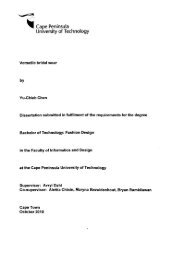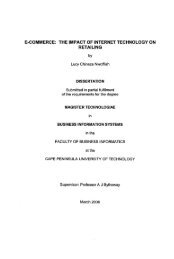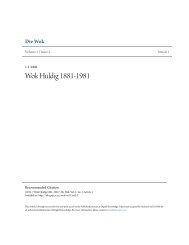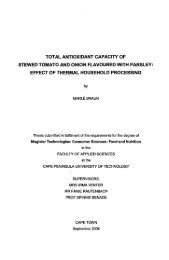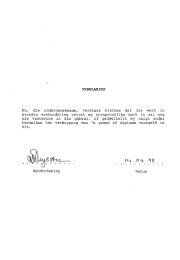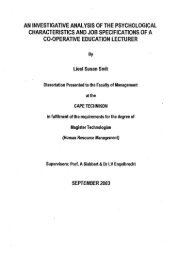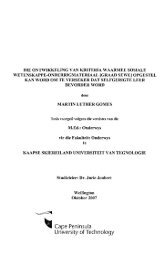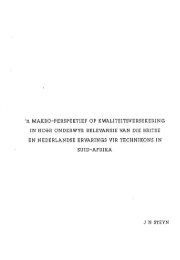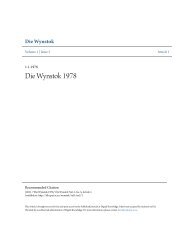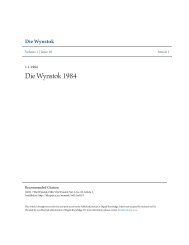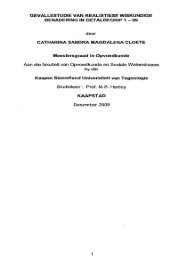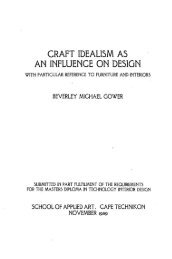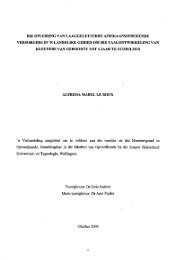Kaapse Skiereilandse Universiteit van Tegnologie
Kaapse Skiereilandse Universiteit van Tegnologie
Kaapse Skiereilandse Universiteit van Tegnologie
Create successful ePaper yourself
Turn your PDF publications into a flip-book with our unique Google optimized e-Paper software.
Abstract<br />
This study emphasized the important role of phonological and phonemic awareness and understanding<br />
of letter-sound correspondence in elementary reading in a grade 1 class. The importance of<br />
preparatory activities preceding reading is strongly emphasized when looking at strategies for delays<br />
to cope in beginning reading. The ability of learners to develop auditory and visual perceptions and<br />
discernment between sounds and sound patterns are described as predictors of successful reading.<br />
Early and continuous monitoring of initial reading skills are an important aspect to reduce and prevent<br />
reading barriers.<br />
Action Research is conducted in a grade 1 class with learners who have not received grade R<br />
instruction and who at age 5 ½ years already enrolled at the school. The learners are young and do not<br />
receive enough stimulation at home. They already show barriers to learning in the effective use of<br />
language and learning with school entry. Due to the large backlogs of these learners the focus is on<br />
phonological awareness and phonemic awareness in elementary reading of the young child. The<br />
development of phonological and phonemic awareness and the organization and importance of<br />
teaching phonics in context, as a method of reading to strengthen skills at grade 1 learner in a poor<br />
language environment is investigated. A variety of teaching strategies in reading approaches is<br />
investigated in the study. The findings of the effect of phonological awareness and phonemic<br />
awareness in elementary reading are discussed.<br />
Learning Programmes such as the ‘Foundation for Learning’ of the National Department of Education<br />
(DoE) introduced to schools should be taught thoroughly. The view of the Western Cape Education<br />
Department (WCED 2006: 3) who expressed the approach to Literacy as “explicit teaching of phonics<br />
within a balanced approach to reading” is held. This approach allows major challenges to educators<br />
and learners in a poor language environment. Educators' methodology of teaching reading should be<br />
adjusted and should be focused on the teaching of phonics in context to maintain a balance between<br />
phonic and balanced approach to reading.<br />
iii




